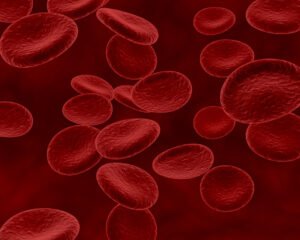It is not a single vitamin but it is group of eight vitamins. These vitamins perform various functions in maintaining overall health of a person. Vitamin B is essential for normal functioning and maintenance of body health. Members of vitamin B are essential for energy production, red blood cells formation, and production of neurotransmitters. These vitamins work individually as well as in corporation for the well-being of a person.

Functions of Vitamin B
This group of eight vitamins is beneficial to the body and performs various functions. These functions are as follows:
Energy Production
Most member of this family perform major role in respiration which is a process that involves production of energy. They help in conversion of macro molecules i.e. carbohydrates, fats and proteins into smaller units. During this conversion of macro nutrients energy is produced to carry other functions occurring inside of the body.
Brain Health
Several member of this vitamin family particularly B12 is essential for proper operating of nervous system. Brain is integral part of body. It control all the functions and gives commands to receptors as required. With passage of time older cells starts to decay in natural process.
These vitamins are helpful in preserving brain health by preventing its decay over time. Its deficiency can cause memory lose in older age. When cells decay over time then information stored in those cells also gets lost.
B2 is helpful in operation of nervous system. Oxidative stress in brain causes memory loss and confusion. These vitamins are necessary to prevent this loss. Vitamin B6 has an active role in production of chemicals which are responsible for transmission of signals. These chemicals are called neurotransmitter. The fundamental function of neurotransmitter is to transmit signals to and from the Central Nervous System.
Cardiovascular Health
This vitamin B complex is also important in prevention of heart diseases. heart is powerful muscle that provides the body with essential nutrients to maintain all system through blood. and then takes all the used material back to filter it. so it is also integral part of body without heart functioning of body is impossible.
Member of this vitamin family reduces the level of homocysteine in blood. Homocysteine have essential role in the maintaining health of heart. When the level of homocysteine increases in blood it causes heart diseases. B6, B9 and B12 are involved in this reduction process.
Red Blood Cell Formation
This group of vitamins has an effective role in the production of red blood cells. b3, B12 and Folate are involved in the production of DNA which is map of cell functions. DNA has all the information for structure and function of cell. So in this way they are also responsible for the production of red blood cells.
Health of Digestive System
It also play active role in digestion. In the process of digestion blood absorbs the nutrients from the food and utilize them for the further functioning in the body and respiration to get energy. They carry out metabolism of carbohydrates, proteins and fats to get energy during respiration. Gut also needs Vitamin B complex for maintenance of its lining. They keep the digestive track healthy by promoting its health.
Types of Vitamin B
Vitamin B is basically referred to eight groups of vitamins. These eight vitamins have distinct features and functions in the body. But they also work together in synchronization. It is very important to have sufficient supply of theses vitamins to the body so that body can work normally.
Following are the eight members of this family:
- B1 (Thiamine)
- B2 (Riboflavin)
- Vitamin B3 (Niacin)
- B5 (Pantothenic Acid)
- B6 (Pyridoxine)
- B7 (Biotin)
- B9 (Folic acid)
- B12 (Cobalamin)



[…] someone is saying pantothenic acid. Actually it is another name Vitamin B5. This is also member of vitamin B complex family and performs various functions inside the […]
[…] B12 is a member of vitamin B family and important for many functions that it performs inside your body. It is water soluble that it is […]